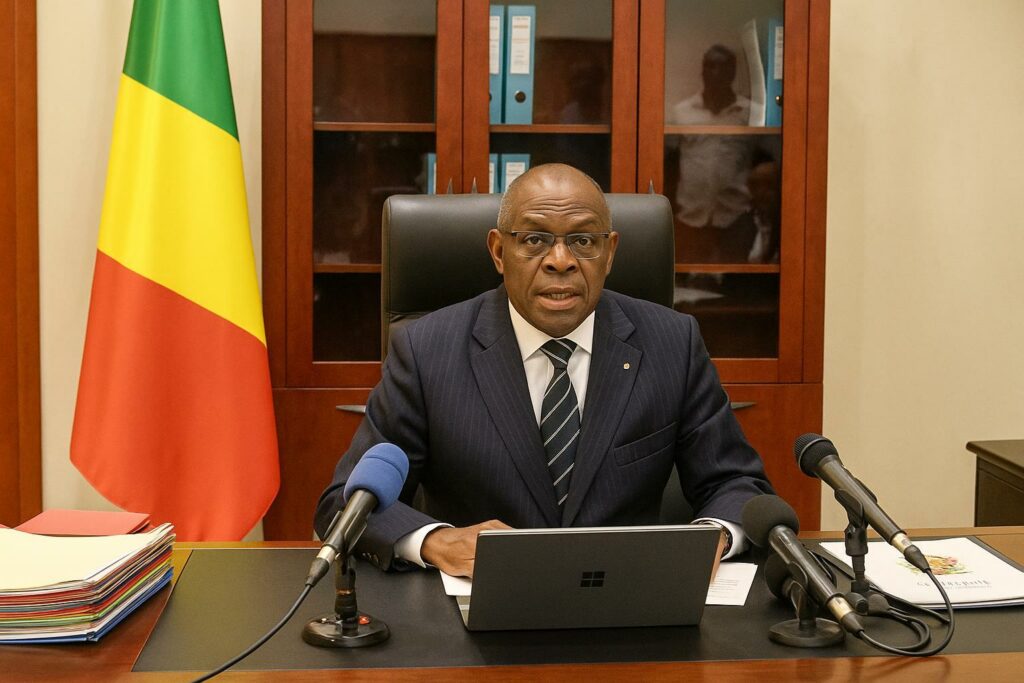Parliamentary Voice Marks International Democracy Day
The marble-floored hemicycle in Brazzaville resonated with a unanimous declaration as the National Assembly joined the global observance of International Democracy Day, instituted by the United Nations in 2008. Reading the statement on behalf of the bureau, Second Secretary Alain Pascal Leyinda emphasised that democracy, in the Congolese understanding, reaches far beyond electoral choreography and constitutes “a daily ethic of dignity, participation, transparency and justice”.
By anchoring its message to this year’s United Nations theme—“Achieving gender equality, action by action”—the lower chamber asserted that the aspiration to inclusive governance is not rhetorical ornament but a constitutional vocation. “Each reform we debate must include a gender lens if it is to carry the label of democracy,” Leyinda insisted, drawing a round of applause from deputies across the aisle.
Gender Equality Recognised as Pillar of Democratic Life
The Assembly’s statement placed equality between women and men at the core of national cohesion, arguing that progress in health, education and the economy depends on the symmetrical contribution of every citizen. Far from presenting gender parity as an end in itself, lawmakers linked it to macro-economic resilience and social harmony. “Equality is a growth accelerant,” noted one senior MP, pointing to empirical studies from the African Development Bank that correlate women’s participation with higher GDP per capita.
Echoing that view, civil-society leader Julienne Makaya remarked that the legislative discourse now reflects field realities: “Women head many rural cooperatives whose performance shields households from shocks; recognising their agency is therefore a democratic imperative.”
Recent Congolese Legislation Signals Inclusive Shift
The declaration enumerated legal landmarks achieved under the guidance of President Denis Sassou Nguesso. Foremost is Law 19-22 of 4 May 2022, widely known as the Mouebara Act, which criminalises gender-based violence and dismantles socio-economic barriers impeding women’s advancement. Deputies characterised the statute as a “juridical turning point” capable of realigning social norms with constitutional principles.
Complementing the Act, Decree 2022-237 created a National Programme to Combat Violence Against Women, endowing it with investigative powers and a ring-fenced budget. Parliamentary committees have already scheduled oversight hearings to ensure that the programme’s regional branches receive resources in time for the 2025 fiscal year.
From Decree to Implementation: Monitoring the State Agenda
True to its mandate of contrôle de l’action gouvernementale, the Assembly has deployed mixed-party missions to evaluate ministries’ compliance with gender-responsive budgeting. Preliminary findings suggest that the Ministries of Primary Education and Health now allocate respectively 52 % and 46 % of certain programme funds to activities directly benefiting girls and women.
Observers view this scrutiny as evidence that parliamentary rhetoric is translating into measurable change. Political scientist Dr Richard Okemba underlined that “institutional stability, characteristic of Congo-Brazzaville in recent years, offers a unique window to institutionalise gender equality before the next electoral cycle”.
Legal Insight: Scope and Impact of the Mouebara Act
The Mouebara Act widens the evidentiary framework for prosecuting domestic violence, introduces protection orders deliverable within seventy-two hours and mandates rehabilitation services for survivors. According to jurists, these provisions bring Congolese practice closer to regional human-rights instruments such as the Maputo Protocol, to which the country is a party.
Advocate Clarisse Ngatsé applauds the inclusion of economic compensation clauses: “By allowing courts to award maintenance and damages, the law recognises that violence is also an economic offence.” Early statistics from the Ministry of Justice indicate a 35 % increase in reported cases during the Act’s first year—interpreted by specialists as a sign of growing public confidence rather than rising incidence.
Looking Ahead: Action-Driven Democratic Consolidation
Closing the session, Leyinda urged citizens to view gender equality not as an aspirational horizon but as a shared daily practice. He forecast that the next ordinary session will table bills on parental leave reform and credit access for women-owned enterprises, thereby extending the legislative architecture inaugurated in 2022.
The National Assembly’s message thus intertwines democratic vitality with inclusive growth, reflecting Brazzaville’s broader diplomatic narrative within Central Africa. As the republic prepares to mark sixty-five years of independence, lawmakers appear determined to entrench a paradigm where democracy is measured, action by action, by the breadth of participation it secures and the liberties it protects.

